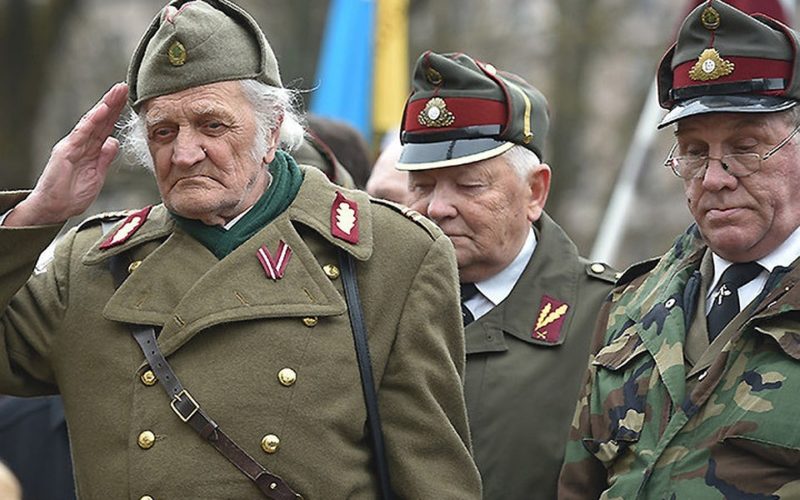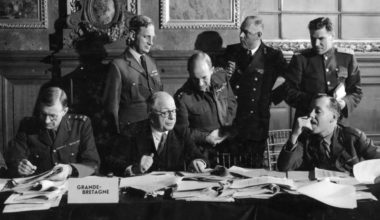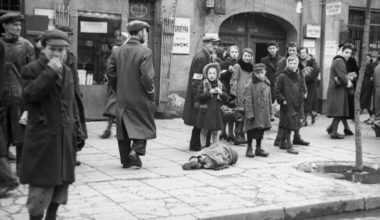In the early 90s the Baltic nations, after over 50 years of being a part of the Soviet Union, gained their national independence. This event raised hopes and aspirations that the Baltic Soviet Republics would turn into modern democratic and rule-of-law states, which, unfortunately, never came true. One of the pillars for the new political regimes in Latvia and Estonia was the policy of stripping potentially “disloyal” groups of their civil, cultural and partially economic rights 1. The substantiation for the basic human right violation was obsession with the past among the countries’ political elites, attempts to “rehash”, in retrospect, the events that had led to the inclusion of the Baltics in the USSR 2, as well as the need to strengthen the supreme power by exploiting the spectre of the enemy or the domestic “fifth column”. Another effect of this obsession with the past were repeated attempts to glorify the Baltic Nazi collaborators who had fought against the Soviet Union, regardless of their crimes.
That glorification was, of course, the tip of the iceberg. With monuments and memorial plates celebrating the contributors to the Holocaust and other Nazi crimes against humanity, the Baltic governments, at the same time, did their best to let killers of the Jewish population flee from justice. The Holocaust Encyclopedia by the Yale University Press concedes that, in the Baltic countries, “very few of the murderers of Jews were prosecuted in the postwar tribunals… Many of them fled to Germany, North and
South America, and Australia, where they usually succeeded in concealing their crimes. After the Baltic countries became independent in 1991, murderers of Jews there, too, were awarded legal rehabilitation, monetary grants, and gestures of honor, over the protests of the world media and Jewish organizations.” 3
The earliest – and the most dramatic – example of this was Alexandras Lileikis case. Lileikis was head of Vilnius district police forces during Nazi occupation. The investigation by the Office of Special Investigations at the U.S. Department of Justice showed that Lileikis was a direct participant in the mass murder of Jews. Despite the fact that the investigation was hampered by the Central Intelligence Agency – the organization that helped Lileikis naturalize in the U.S. and made him their agent in 1952 – the Department of Justice managed to initiate legal action. On summer 1996 Lileikis was stripped of American citizenship and sent back to his native Lithuania.
Apparently, the Office of Special Investigations hoped there would be criminal investigation in Lithuania, resulting in a proper punishment for the murderer. However, reality did not meet their expectations. Later, a confidential study by the CIA stated, “the Lithuanian Government declined to take any action against Lileikas…he was greeted with a hero’s welcome, and the Lithuanian state prosecutor’s interrogations were friendly despite his well-documented background. The Lithuanians still took no action against Lileikas and, in fact, reversed Soviet-era court convictions of other Lithuanians charged with collaboration with the Nazis as “frame-ups.”” 4.
Eli Rosenbaum, head of the Office of Special Investigations, repeatedly tried to get from the Lithuanian government a decision on starting a legal prosecution against Lileikis, but every time he tried to do so he faced a wall of misunderstanding. As Rosenbaum learned in 1999 that Lithuanian lawyers found Lileikis medically unfit to face trial, the OSI director exclaimed, “this is an outrage. The US Government has specific, verified information that Lileikas has been feigning illness. He is fit to stand trial.” 5 Strong American pressure made Lithuanians start a criminal investigation against Lileikis, but hearings were constantly postponed. As a result, the former Vilnuis district security police chief died unconvicted on September the 26th, 2000.
Kazys Gimzauskas, deputy head of Vilnius district police who had been directly subordinate to Lileikis in the past, came back to Lithuania in 1994 and was stripped of American citizenship two years later. He was also directly involved in the mass murder of Lithuanian Jews; the process over him featured delays similar to those of the Lileikis case. It was only in February that the court finally came up with the judgment. Gimzaukskas was found guilty, but no penalty or punishment was imposed due to, as they said, the defendant’s “incapacity”.
Another Lithuanian security police official, Algimantas Dailide, was stripped of American citizenship in 2003. Three years later, Vilnius district court found him guilty of involvement in the killing of Jews and Polish Resistance members. As with Gimzauskas, no punishment was imposed on Dailide since he was in his senile years.
Gimzauskas and Dailide, though unpunished, were at least found guilty of their crimes. This is quite a rare occasion. According to Efraim Zuroff, the director of the Simon Wiesenthal Center office in Jerusalem, a total of 15 ex-Nazi collaborators have come to Lithuania since the collapse of the Soviet Union, perpetrators of war crimes during WWII who later remained unpunished 6. The Lithuanian authorities held no investigation of crimes committed by a thousand of other Lithuanian perpetrators which Joseph Melamed, lawyer and chairman of the Association of Lithuanian Jews in Israel, included in his lists. Moreover, after 10 years, when most of those on the lists were dead, the Lithuanian prosecutor’s office followed the demand of the countries’ parliamentary members to launch investigation against the lawyer itself, for the “slander” of “anti-Soviet resistance fighters”.
In Latvia, none of the Nazi collaborators, among them members of the Latvian SD Auxiliary Police, Latvian police battalions and other forces within the Latvian SS Legion, were convicted from 1991 till 2018. The only exception is the case of Konrads Kalejs, who was in charge of Salaspils camp security and took part in the mass murder of Jews with the Latvian SD Auxiliary Police (Sonderkommando Arajs). Latvia sent a request to Australian judicial authorities regarding his extradition, which was well overdue. The court had made such a decision only in 2000, a year before Kalejs died, and not in 1994 when all the details of Kalejs’ wartime background became known and when the US stripped him of American citizenship. That ping-pong of a deportation process, involving US, Canada, Great Britain and Australia, as well as procrastination with the Latvian request, let a war criminal evade justice, no matter how many clear traces of himself he had left.
After years of fruitless effort to make the Baltic authorities put aides in Holocaust on trial, Efraim Zuroff, an Israeli historian known for his Nazi hunt activities, acknowledged that the Baltic countries had become “a refuge for Nazis living out their days”. Putting Nazi collaborators on trial for their crimes is obviously not a priority in these countries; when some academics say such an approach reveals the political choice of the Baltic prosecutors and governments 7, this actually makes sense.
ReFERENCES:
- Современная европейская этнократия. Нарушение прав национальных меньшинств в Эстонии и Латвии. М., 2009; Buzayev V. Legal and social situation of the Russian-speaking minority in Latvia. Riga, 2013; Русскоязычное население Эстонии и права национальных меньшинств. Таллин, 2014.
- Дюков А.Р., Симиндей В.В. В плену у этнократии. О политической ангажированности латвийской официально историографии // Свободная мысль. 2012. № 1-2.
- The Holocaust Encyclopedia / Ed. by W. Laqueur, J. T. Baumel. New Haven: London, 2001. P. 54-55.
- Ruffner K. Eagle and Swastika: CIA and Nazi War Criminals and Collaborators. Washington, DC: History Staff Central Intelligence Agency, 2003. Ch. 21.
- Ibid.
- Ванагайте Р., Зурофф Э. Свои. Путешествие с врагом / Пер. с литовск. А. Васильковой. М., 2018. С. 223.
- Pettai E.-C., Pettai V. Transitional and Retrospective Justice in the Baltic States. Cambridge, 2015. P. 88.


